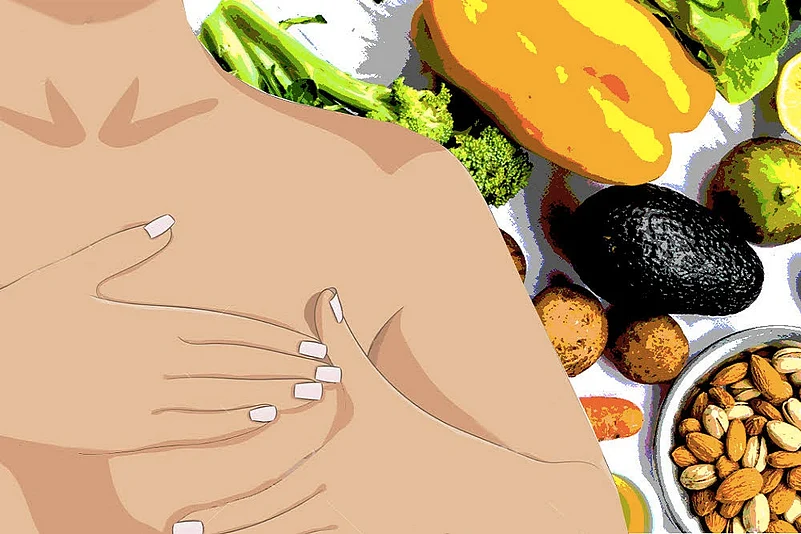We often find ourselves pondering upon the thought of having a balanced lifestyle, yet end up going through the same routine in a cycle, round the clock. In a way, we have made the idea and pursuit of “good health” scary.
This has been the thought behind our workshops, Fruit & Nut, to make sure that our notion of “good health” remains a positive one. During these workshops, we make our best efforts to ensure that each minute is a step forward, towards the kick-ass lifestyle we always dream about.
The Fruit & Nut workshops by Aaroogya Holistic Health Foundation, India’s biggest holistic health and early detection of breast cancer campaign, were held in October, the Breast Cancer awareness month. The estimated reach of our campaign was 0.4 million women and adolescent girls in and around the Delhi-NCR region.
The most common cancer
Breast cancer has been considered the most common type of cancer among the women in 161 countries. It’s also the most common cause for cancer deaths in 98 countries. Nutrition is important for women of all age groups. In children and young adults, they play an important role in growth. But, in women above the age of 35, it does more than just provide a balanced diet for general wellbeing.
Obesity & Breast Cancer
What we eat affects our weight. High levels of oestrogen lead to weight gain, particularly around the hips and waist. Obesity is one of the causes that lead to high risk of breast cancer in women. Those who are cured from the disease should also take extra measures to control their weight as healthy diet may boost one’s chances to live longer after Breast Cancer.
For women, being overweight or obese after menopause can also increases the risk of breast cancer. Women who are overweight tend to have higher levels of insulin. Higher insulin levels have also been linked to some cancers, including breast cancer.
Role of Oestrogen
Some foods have high phytoestrogen (from plants) levels, which have a similar chemical structure as oestrogen. High oestrogen levels in the body are believed to dramatically increase our risk of breast cancer. Flax seeds and soy are two such foods that boost up the phytoestrogen levels in our body. Certain medication and antibiotics can also lead to high oestrogen levels. People taking oestrogen-replacement-therapy, a treatment for menopause symptoms, may also experience adverse effects of high oestrogen.
Eating a high fibre diet can accelerate the elimination of oestrogen. Fibre supports the digestive system and the regular elimination of waste, including excess oestrogen from the body. It helps the body eliminate toxins and limit the damage. Polyunsaturated and monounsaturated fats can also be beneficial in moderation. They are present in olive oil, avocados, seeds and nuts.
Role of Vitamin D
Many efforts and enormous research have been directed towards identifying vitamin D risk factor, to be targeted for breast cancer prevention. This is because, circulating vitamin D levels (levels ≥45 ng/mL) may protect against this cancer.
Vitamin D from foods and sunlight exposure may help protect against breast cancer. Vitamin D is present in eggs, cold-water fish, and fortified products. If these are low, the daily bodily needs can also be fulfilled by supplements.
Role of Folates
Observational studies show that people who get higher than average amounts of folate from their diets or folic acid supplements for 15 years or more have lower risks of colon and breast cancer.
The Key Takeaways
l Live demonstration of making organic plant-based milk with coconut and almond. Both are 98.5 per cent fat-free and low in saturated fat.
l Making of bio enzymes and recipes that can replace unwanted chemicals of the house with fragrances—detergent, room freshener, body soaps and what not.
l Discussing five elements of lifestyle reverse disorders.
l Gender neutral and an immersive workshop on sexual health and menstrual health for both men and women in the room
l Aaroogya card games for making cancer early detection and prevention an easy ride to grasp and sync in the importance.
l Demonstration of self-Breast-examination via thermo mammogram
Therefore, following a healthful diet that is rich in fruits and vegetables and low in added sugar and trans fats may reduce the risk of breast cancer. It can also lower the risk of obesity,
leading to developing breast and other cancers.





















